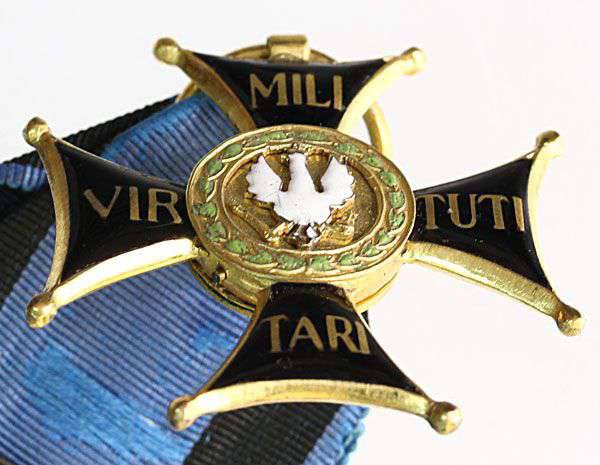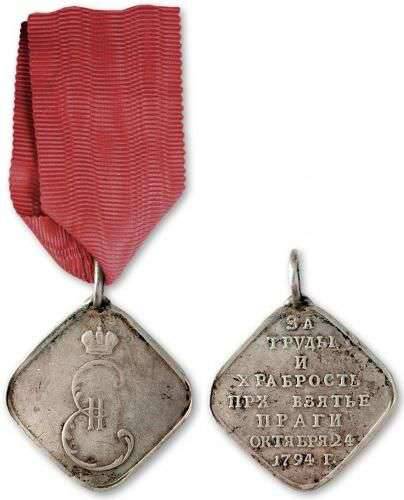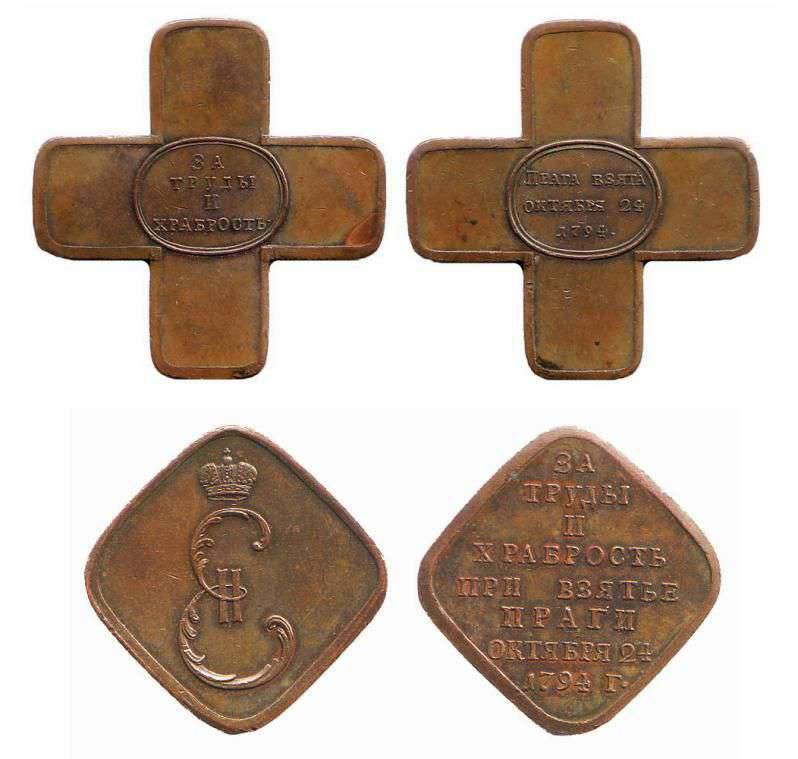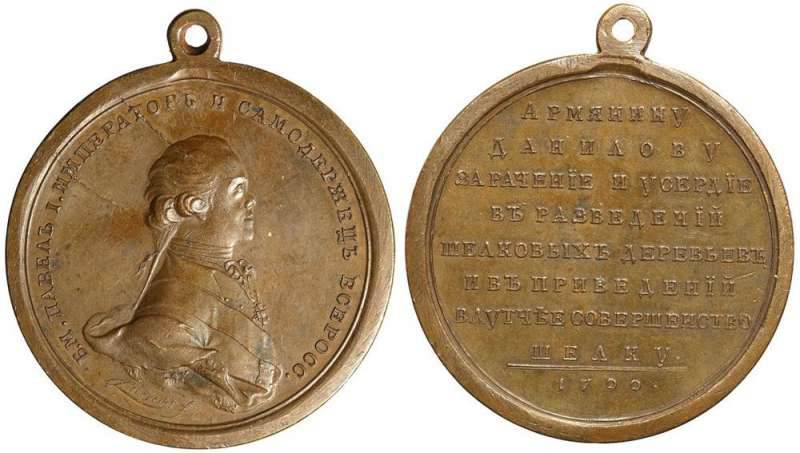For the capture of Prague
The remarkable Russian poet Alexander Vvedensky (the epithet “great”, attached now to anyone, has already lost its original high meaning) in the 30 years of the last century once sadly joked among friends (and, alas, scammers) that he is a monarchist, for only with a hereditary form of government is there a certain chance that a decent person can happen to be in power.
Looking back, at the long row of Russian autocrats, it is difficult not to succumb to a different feeling — an inexplicable pattern, a strange orderliness of their appearance and following one after another, as if a pendulum were swinging and two opposing parties replaced one another.
The “monitors of freedom”, martinet and reactionaries were replaced on the throne by the monarchs conditionally “good”, who in general played a progressively transformative role in stories our country. See for yourself (for convenience, we have divided two “parties” into pairs):
Peter III - Catherine II, Paul I - Alexander I, Nikolai I - Alexander II.
It is now difficult to prove the validity of such a division: in recent decades, when the triumphant publicity has lifted bans on statements on every occasion, languages have also been unleashed by various obscurantists. Often nowadays one can meet in our literature and media panegyrics of crazies and tyrants of the past.
Now, Nikolai Pavlovich, who, according to Fyodor Tyutchev, did not serve God or Russia, “served only his vanity,” “not the king, but the hypocrites,” who received from the hands of his older brother Alexander the country - the winner of Napoleon, who only recently got rid of Corsican monsters to other European peoples, and in the end led her to the rotten swamp of the Crimean War, some respectfully referred to as the “knight of autocracy”.
Is it not too flattering, however, such an opinion about the self-proclaimed censor Alexander Pushkin (Tyutchev, by the way, also), who imposed on the works of the poet savage resolutions like this:
“It can be distributed but not printed”?
Something, your will, demonic, Daniilandreevskoe lurks in his coming to power, and in parting with it — both were accompanied by bloody sacrifices. It is very likely that the death of Nikolai was still the result of not official pneumonia after suffering the flu, but of the poison he received in a state of profound depression from the hands of his life doctor Friedrich Mandt.
Of course, the Decembrists who were murdered by Nikolai (if not all, then certainly the sadist Pavel Pestel) were not at all those beautiful-hearted sufferers that propaganda tried to imagine in Soviet times. On the other hand, the death of the two largest Russian artistic geniuses, Alexander Pushkin and Mikhail Lermontov, precisely at the time of the Nikolaev reign, is tragically absurd and too similar in circumstances not to lead to suspicions, is also far from accidental and highly symbolic.
But Emperor Paul, unlike his third son, seems to us rather a tragicomic figure. And the emphasis in the last word, someone persistently makes the first part of it. (Imagine that in 1916, in the depths of the Russian Orthodox Church, even documents were prepared for the canonization of this sovereign!)
The beginning of such a perception of the personality of the “Russian Hamlet” was put, oddly enough, by himself, spreading the story of his meeting with the ghost of Peter I, who allegedly addressed his great-grandson (a relative relative, because he most likely was no longer Romanov by blood) :
"Poor, poor Paul!"
Most precisely, perhaps, Pavel was characterized by a certain anonymous contemporary (the epigram was attributed to the great Alexander Suvorov):
"You are not a captain in Petrovoy, a glorious city,
But the barbarian and the corporal on the parade. "
Not much good can be said about him; her own mother did not want to allow him to rule the country, she was perspicaciously keeping herself at a distance. And would not have allowed, did not destroy the cabinet secretary Alexander Bezborodko testament, according to which, after her death, all power passed from Catherine to the eldest of the grandchildren, bypassing their dangerous father for others. For friendly service, Bezborodko was promoted to chancellor by Paul.
Immediately after the ascent of Hamlet to the throne, military reform was reduced mainly to a dulling drill. By the requirement of slavish subordination of lower commanders to higher ones, she deprived the first of any initiative - the scourge of our army and in later times, in the Great Patriotic War, when only the bloody lessons taught by the Wehrmacht taught to fight not according to a pattern.
True, in addition to braids and bukley, Pavel first introduced a very necessary and convenient overcoat, replacing the traditional epanche and allowing the lower ranks dressed in it to quietly load ammunition.
But as for awards - orders and medals, - here the new monarch did everything in order not to deprive the servicemen with this graphic evidence of fame and personal courage. In the appropriate place, we wrote about how Paul jealously treated the legacy of an unloved mother — the Orders of St. George and St. Vladimir: they were no longer handed. Instead of the two most "militant" orders, he widely began to practice the promotion of the "family" Ann's Cross. Pavel tried to approve the Order of Malta in Russia, including as the award of the same name.
If the orders, though less significant, were still given to the officers, then for ordinary soldiers, driven along the Gatchina parade ground before fainting, not a single award medal was instituted. The Suvorov miracle warriors of St. Gothard and the Devil's Bridge, the sailors from the ships of Fyodor Ushakov, who participated in the Mediterranean voyage, were not considered worthy! The lower ranks at that time relied only insignia of the Annensky order and then another donation of the Maltese cross.
However, the first one, up to 1864, was awarded not for a personal feat or participation in a specific battle, in a war, but for twenty years of immaculate service. The second one, established to replace the first one in 1800, did not take root in Russia, and soon after the murder of Paul quietly ceased to exist. It is also good that the sign and donat even freed the veterans from corporal punishment, so beloved by Paul and other "corporals" like him.
At the same time, in an inexplicable impulse, this emperor could bestow on someone a personal medal. The design here was standard, with a profile of Paul on the obverse (the author of these medals is the master Karl Leberecht). Only the verbose legend on the reverse varied.
So, on one of the medals we read:
“To the Georgian nobleman of the Armenian nation, Mikertem Melik Kalantirov, for his success in the cultivation of mulberry trees and silk business”. A similar "manet" was given to another "silkworm", "Armenian Danilov" - "for cultivation and diligence in breeding."
In the summer of 1799, a team of 88 sailors and builders set out from Petersburg for the Sea of Okhotsk with the mission to organize a permanent fleet in the Pacific. Commander of the expedition was Captain-Lieutenant Ivan Bukharin. The detachment of Bukharin, no matter how hurried, reached Okhotsk only a year later. At the end of February 1800, he almost got stuck in Yakutsk: the horses fell.
But thanks to the help of the Yakuts, all the weapons and ship equipment were brought to the ocean coast without losses. This is how a whole series of personal medals appeared, for example, “Yakutsky prince of Kangalas region, Belin’s head for providing assistance to Captain Bukharin”. She and several others of the same type with her were distributed to the Yakut "princes" for wearing on the black ribbon of the Maltese Order.
A pavlovsk medal “For the Victory” of an unknown purpose has reached the present day in the form of a historical curiosity and tiny (diameter of the entire 29 mm!) Its reverse is so small that the inscription is divided into three lines with difficulty:
"FOR VICTORY".
Judging by the date on the front side (“1800 year”), the medal could supposedly be intended not even for soldiers, but for Suvorov and Ushakov officers. Be that as it may, information about awarding it to someone is missing. There is no mention of this “baby” in the editions of the “Collection of Russian medals” 1840 of the year dedicated to the medals of Paul I.
Now, having given “Poor Paul” his terrible fate, we will be transferred to 1794 year. From Russia we will move to Poland in the ranks of the tested Suvorov troops. However, first, as expected, we will conduct a reconnaissance.
From the middle of the 18th century, weakened by internal discord, Poland de facto lost its independence and found itself under the pressure of its stronger neighbors. Prussia pressed on her from the west and north, Austria pressed her from the south, and giant Russia from the east, which Poland once tried to swallow, but choked (a boa who swallowed an elephant can only be in the tale of Antoine de Saint-Exupéry about the Little Prince). Now the reverse process took place.
However, successive sections of Poland were beneficial, rather, Prussia, while Russia took part in them to some extent forcedly. At that time in St. Petersburg, many far-sighted people understood the danger of direct proximity to expansive Germans. Later, he was still admitted, which led to the catastrophic defeats of the First World War, which caused the February coup, which destroyed the empire.
Only one thing then the Russian autocracy Poles could not afford to do - the liberal May 1791 Constitution of the year. This constitution, adopted by the Polish-Lithuanian Commonwealth not without the influence of revolutionary France, had an effect on Catherine, like a red rag on a bull. Having barely ended the victorious war with the Turks and dismissing various other Swedes, she, strongly encouraged by the Polish magnates, united in the so-called Targowitz Confederation, moved regiments to Poland.
The ensuing Russian-Polish war of the 1792 of the year took place in insignificant clashes, minor clashes with dozens, rarely a couple hundred killed. Polish historiography proudly calls these skirmishes “battles”. Under Ovs, Mir, Borushkovtsy, Brest and Voyshka, the Russians easily gained the upper hand. And the “battle” near Zelentsy (in Russian historiography “at the Settlement”) on the territory of modern Ukraine (Khmelnitsky region) was recorded by the Poles as an asset.
7 (18) in June, the corps of Jozef Ponyatovskiy met there in battle with the Russian detachment of Major General Count Irakli Morkov. The Poles fought desperately, even pushed aside the enemy. Yes, here hastily and retreated.
A man of extraordinary valor, the future leader of the Moscow militia in World War 1812, and a participant in the Battle of Borodino, Irakly Ivanovich Morkov was awarded for this fight with the Order of St. George II degree. Two previous degrees of the same order he received for the assault of Ochakov and Ishmael. “The bravest and invincible officer” - this is how Suvorov certified his subordinate before.
Here is what the rescript said about the new award:
"In respect of the zealous service, the brave and courageous feats that distinguished him in the defeat of the troops in Poland’s opposing 7 faction on June 1792 of the village of Gorodishche, where he commanded the vanguard and prudent orders, art, courage and boundless zeal won a complete victory."
All this, however, did not prevent the Poles immediately announcing themselves to be full winners at Zelentsy. Still would! After all, almost a hundred years before, they had never been able to defeat the Russians, but even seriously oppose them on the battlefield! On this occasion, the uncle of General Jozef Ponyatovsky, King Stanislav Augustus, hastily established a special Medal Vertuti Militari, immediately transformed into the eponymous order.

The history of this order is not our topic. We did not mention it at the time when talking about the Polish orders in the Russian Empire, because, unlike our “brothers”, the White Eagle and St. Stanislaus orders, Vertuti Militari entered our award system after Poland joined Russia in 1815, but remained in it for long and was in a special position. Emperor Alexander I did not like him, did not complain of his Russian subjects to them.
Under Nicholas I, a curious situation arose: Vertuti Militari massively rewarded participants of the suppression of the Polish uprising of the 1831 of the year, but at the same time the rebels distributed the same order to each other (the design was only slightly different)! Therefore, having done away with the insurgency, they abolished the award.
Vertuti Militari was restored in Poland several times, the last in 1944. At that time, not only the soldiers of the Polish Army, but also Soviet soldiers, officers, generals, marshals: Georgy Zhukov, Ivan Konev, Alexander Vasilevsky and, of course, Konstantin Rokossovsky, became his cavaliers.
After the Great Patriotic War, the Poles awarded him and some Soviet political figures. Such an order was present, for example, in the extensive collection of Leonid Ilyich Brezhnev. However, in the 1990 year of Brezhnev, the new Polish authorities posthumously deprived the order - to fight the shadows and overcome Russia in the pages of pseudo-historical works, the Poles are always ready.
As for the medal, they barely minted it and started handing it (they managed to distribute 20 from 65 gold and 20 from 290 silver), as the war quite predictably ended. The inconstant King Stanislav turned over to the side of the magnates, abolished the Constitution and strictly forbade both the medal and the Order, which he himself had just instituted. Russia, under the 1793 peace treaty, annexed Right-Bank Ukraine and part of the Belarusian lands with Minsk.
However, in the spring of next year, an uprising began under the leadership of Tadeusz Kosciuszko. From Krakow, in the blink of an eye, it was transferred to Warsaw, where the Russian garrison under the command of the Catherine’s diplomat, the freshly baked Earl of General Osip Igelström, was taken aback. Instead of always being on the lookout in an untamed country, Igelstrom was engaged in amorous affairs with the frivolous beauty of the Countess Gonorata Zaluska.
He even ordered to cover the street where the Countess's house stood, with straw, so that the carriages rumbled along the pavement would not wake the Charge. Such courtly knightly care saved Igelström's life: Zaluskaya found a way to take the count out of the riot-ridden capital. The soldiers and peaceful Russians, abandoned by them to the mercy of fate, who happened to be in Warsaw at that moment, were less fortunate.
This is what the famous fiction writer, journalist and critic, the addressee of the most evil Pushkin epigrams, Faddey Bulgarin, later wrote about:
“The Russians, making their way through bayonets through the crowds of rebels, were to come out from Warsaw. The retreating Russians were shot from windows and rooftops, throwing logs at them and everything that could cause harm, and from 8000 Russians 2200 people died. ”

This if we count only the military. Although without mercy Poles killed any Russian: officials, diplomats, merchants, their wives and children.
17 April 1794 entered the history of Russian-Polish relations as the Warsaw Matins, because the massacre of our compatriots took place on Holy Thursday on Easter Week. The Orthodox were taken by surprise during the morning service, which greatly helped the pogromists in their bloody work.
Immediately, Russia retaliated, the main one of which was a call from Kherson to Alexander Suvorov, who was living there in disgrace.
The commander-in-chief of the Russian troops on the western borders of the empire, the aged field marshal Peter Rumyantsev, judged everything correctly: one should act quickly in order not to let the uprising flare up. There was no better way to imagine a better candidate than the conqueror of Ishmael.
Russian detachments moved from different directions to Poland. From the west, the Prussian army approached Warsaw, but the Germans acted indecisively and soon lifted the siege.
Suvorov, without notifying Petersburg, charged Rumyantsev with the main task: to end the enemy with a lightning strike. He, with his usual swiftness, rushed forward, disarming the surrenders and scattering the more steadfast. On September 4, he took Kobryn, 8-th under Brest-Litovsk, crushed the troops of General Karol Serakovsky and already 23-th went to the Warsaw suburb of Prague, which is on the right bank of the Vistula.
On the same day, on the eve of the storming of the strong position of the Poles, one of the famous Suvorov orders for the army was issued:
“To walk in silence, not to say a word; going up to the fortification, quickly rush forward, throw the fascist into the ditch, go down, put the ladder to the shaft, and the arrows beat the enemy on the heads. Climb very quickly, pair by pair, to defend a friend; if the ladder is short, - bayonet into the shaft, and climb on it another, third. Without the need not to shoot, but to beat and drive with a bayonet; work fast, bravely, in Russian. To keep one's way in the middle, not to lag behind the chiefs, the front everywhere Do not run into the houses, asking for mercy - to spare, not to kill unarmed, not to fight with the women, not to touch the youngsters. Who will be killed - the kingdom of heaven; living is glory, glory, glory. "

At first, the troops acted that way. But, having shaken up and chased away the Vistula by the superior numbers of armed Poles, ours in frenzy set about unarmed. Especially lyutovali Cossacks. However, ordinary soldiers from the regiments who suffered in the Warsaw matins, disobeying the instructions of the commander, gave full rage. Suvorov, fearing for the fate of Warsaw, even ordered to destroy on our side the bridge over the river, which the Poles themselves had previously tried unsuccessfully to undermine.
The current Polish historians, of course, attack Suvorov, which distinguishes them from the frightened Warsaw people of the late 18th century: they immediately surrendered and later blessed their Russian savior, who received the military rank of generalissimo in Russia for curbing the insurgency.
The Empress bestowed upon him at the same time a “diamond bow to a hat”, and the grateful Warsaw citizens presented Suvorov with a golden snuffbox decorated with laurels of diamonds with the inscription:
"Warsaw - to his deliverer, November 4 1794 day."
The uprising was over: Kostiusko under Maceiowitz was defeated and captured by generals Ivan Ferzen and Fyodor Denisov, the Polish king Stanislav under the convoy of dragoons went to Grodno under the supervision of the Russian governor, and soon he denied the throne on the day of the name of the Russian empress, his old patron. mistresses.
The officers of the victorious army, from those who did not get the orders, received gold crosses to wear on the St. George ribbon (later we will tell about this kind of awards separately). The soldiers were presented with silver medals of unusual shape - square, with rounded corners. On the obverse - the monogram of Catherine II under the imperial crown, on the reverse - a small inscription in eight lines:
"FOR - LABOR - AND - BRAVITY - AT TAKING - PRAGUE - OCTOBER 24 - 1794."
This mass medal was awarded, by the way, not only for the storming of Prague, but also for other 1794 fights of the year. It was supposed to carry it on the red ribbon of the Order of the Holy Prince Alexander Nevsky. And, of course, with no less pride than the Poles of their Vertuti Militari.

Information